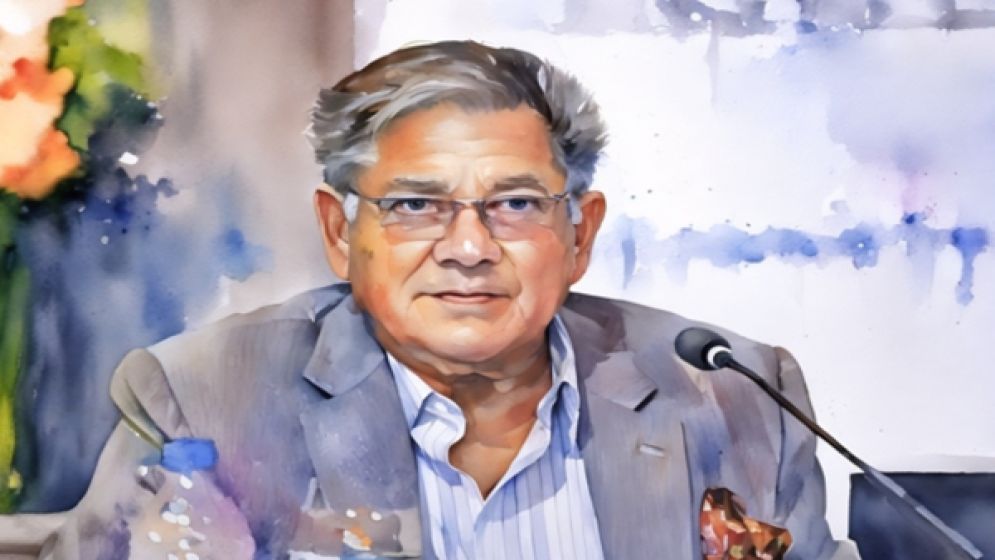“Only an astrologer could predict how long it will take to reform the state”: Advisor Brig (retd) Sakhawat

As Bangladesh's newly sworn-in interim government wraps up its first week, a key question arises: how long will this temporary administration remain before elections restore power to the people?
Chief Adviser Dr. Muhammad Yunus stated that a free and fair election will be organized as soon as possible, following essential reforms in the judiciary, civil administration, law enforcement, and media.
He emphasized that creating a favorable environment for elections is the interim government's top priority.
After the removal of Sheikh Hasina's government on August 5 by a popular movement, many Bangladeshis, who were denied voting rights in the last three controversial elections, are anxious about when the next general elections will take place.
To delve deeper into this issue, Bangla Outlook spoke exclusively with Brigadier General (Ret.) M. Sakhawat Hussain.
Initially appointed as the Home Advisor, Sakhawat was later reassigned to the Ministry of Jute and Textiles, allegedly due to his comments on Sheikh Hasina, the Awami League, and related issues.
Despite his reassignment, Sakhawat expressed his commitment to his new role and highlighted the significant tasks facing the interim government as it works to create an environment conducive to elections, aiming to reform the state system.
Bangla Outlook: How much time will the interim government need to hold the general elections?
M. Sakhawat Hussain: I can’t say precisely how long it will take. After so much bloodshed and sacrifice, it's unrealistic to think we can hold an election tomorrow. We need time to establish the conditions for a fair and meaningful election. The priority is to ensure that any election held will genuinely reflect the people's will.
I am also doubtful about Bangladesh's major political parties. What will they [the BNP or Awami League] do after coming to power through an election? No political party in Bangladesh has taken steps to bring about qualitative change in politics. They have merely cultivated sycophants.
BO: Many political parties are demanding immediate elections. What is your response to that?
MSH: Political parties can demand elections, but we must first ensure that the conditions are right for a free and fair election. The Sheikh Hasina government has severely damaged democratic institutions, including the Election Commission. We have an enormous task ahead to reform the Election Commission.
Additionally, I believe a political party act should be introduced to ensure that the leadership of political parties in Bangladesh cannot act arbitrarily, and there should be clear guidelines for nominating candidates for elections.
Many are now calling for changes in the government system, such as separating the roles of the head of government and the party leader, and limiting the prime minister's term to two terms. We have many plans to reform the state.
BO: How long will these state reforms take?
MSH: Only an astronomer could predict how long it will take to reform the state. We have many complex issues to address. The workload is immense, and I’m already feeling the pressure. Today, I’ve completed many tasks, and frankly, I’m exhausted. This isn’t routine work.
BO: Some are concerned that this interim government may try to cling to power for 5-6 years under the guise of state reform. What do you think?
MSH: I don’t believe that anyone in the current interim government, including Dr. Muhammad Yunus, would seek to hold onto power for that long. There is an urgent need for state reform, and if we fail to make changes to the government system and political landscape, then why did so many have to shed their blood? The people of Bangladesh do not want to see a repeat of the past. I want to send this message to our politicians.
BO: Is Dr. Muhammad Yunus planning to form a political party with student leaders to contest the next elections?
MSH: I haven't heard any discussions to that effect. Dr. Yunus is a globally respected figure, and I don’t think he would tarnish his image by entering party politics. However, I do think there’s a possibility of forming a political party with student leaders.
BO: What is your stance on India's unwanted intervention in Bangladesh's internal affairs?
MSH: India should not interfere in Bangladesh's matters. Such interference could damage our friendship. Either support us or leave us alone. Please, do not misinterpret the situation in Bangladesh, nor attempt to overanalyze it. Do not allow your territory to be used as a platform to interfere in Bangladesh. If you do, you risk losing a friendly nation, which would be detrimental not only to your standing in the region but also to your economic ambitions.
—--

